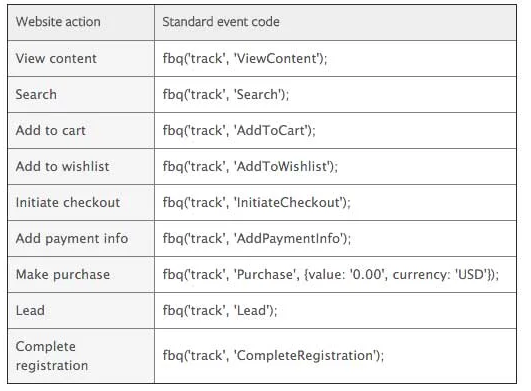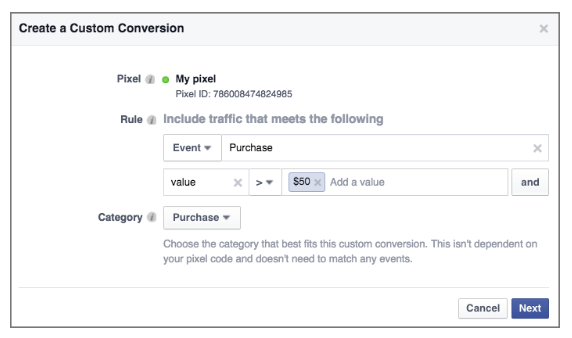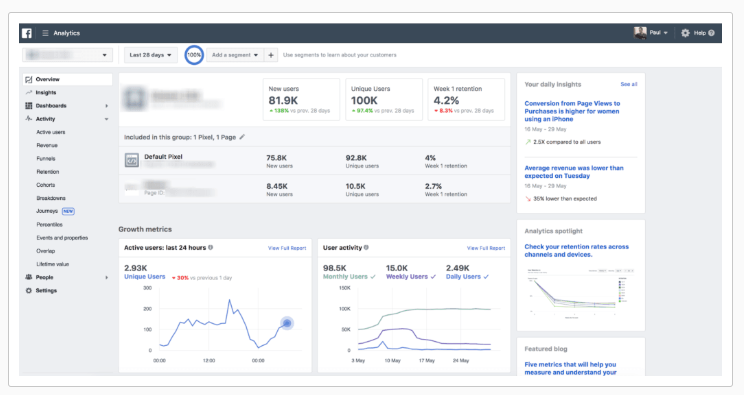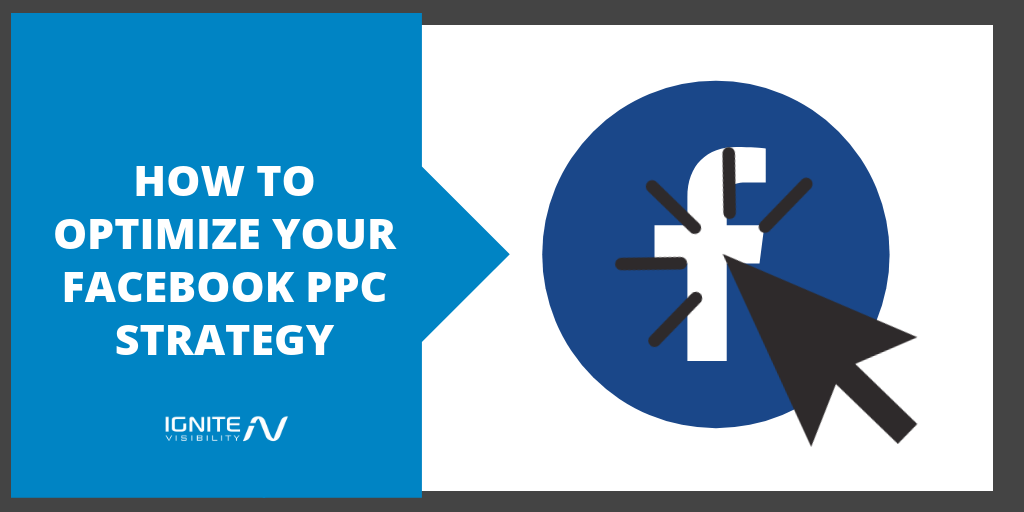Want better results from your Facebook ads?
In this article, Ignite Paid Media Strategist Christian Nicolini gives his top recommendations for optimizing Facebook PPC campaigns.
As you (hopefully) already know, advertising on Facebook is one of the most effective ways to reach your audience.
Not only does it boast a massive reach (as in, over 2 billion monthly users), but its incredible targeting abilities make it easier to deliver your message to the right people.
Unfortunately, tapping into that audience is harder than ever, thanks to the declining reach of organic Business Pages. That means that even fans who like your page may not be seeing your posts.
But because the platform is too valuable to ignore, advertisers are increasingly adopting a pay-to-play approach to reach fans.
And as more and more advertisers jump on board (93% of advertisers use Facebook ads regularly), it’s increasingly important for brands to look for new ways to optimize their campaigns.
First, Make Sure Your Brand is Resonating With Your Target Audience
All good marketing starts with a solid awareness of who you’re trying to reach.
That’s why in-depth research into buyer personas and their motivations is so critical in successful strategies across the board.
Of course, finding your target is only half the battle. After that, it’s a matter of constructing messaging that will resonate with them.
Speaking to individual pain points and finding the right channels and right tone to communicate with are huge here.
But the ultimate determinant in whether or not your brand is resonating lies in your results.
Mainly, a lack of conversions and ad clicks signal that your brand and messaging aren’t working, and a serious dig into your data is needed to find any flaws in your system.
I don’t even need to mention that an ad campaign that doesn’t earn the desired results is basically money down the drain, right?
For bigger spend accounts, I absolutely recommend taking advantage of Facebook’s Marketing Science Team to better understand the impact your ads have at a brand awareness level.
The team is made up of researchers, analysts, and data scientists who work to uncover new ways for businesses to apply better marketing strategies.
These experts work in a variety of different areas – including audience insight, ads research and consumer insight, auction and delivery, etc. – and are constantly providing new information regarding ad optimization and how to better connect with your audience.
Leverage Custom Conversions to Optimize Your Facebook PPC
Optimizing Facebook ad sets towards a specific custom conversion is arguably the most effective way to reach your goal.
Facebook Custom Conversions allow you to track and optimize actions on specific web pages.
It’s ideal for any campaign with a website conversion as its objective, letting you track users as they convert on an indicated page.
So, if your goal is to drive a specific web action – an event sign up, download, purchase, email submission, etc. – you can create an event and turn it into a customer conversion.
That way, Facebook’s algorithm can optimize ad delivery to those most likely to complete the preferred action.
The cool thing about Custom Conversions is that they allow you to expand on standard events.
Basically, conversion events are actions that happen on specific pages tracked through the Facebook Pixel.
For example, if someone:
- Adds a product to their cart on the product page
- Adds payment information on the payment page
- Purchased registered on the thank you page
Facebook would register that as three events.
Standard events include the following:

Using standard events can help your Facebook PPC
To track them, simply include the code snippet of the event you want to track with your Facebook pixel.
Once done, Facebook will deliver your ad to the audience most likely to complete the desired event.
But, by setting up Custom Conversions, you can assign parameters to each event.
Say, for example, you wanted to keep track of purchases over $50. You can add that specific parameter to your Purchase event.
To do so, navigate to your Custom Conversions page in Ads Manager, and click Create Custom Conversion > URL Contains and select Event.
Select the Event and then enter a Parameter (you can add multiple if you click ‘and’).
Select a category and click Next.
Here, you’ll name your conversion and enter your conversion value, and you’re done.

Optimize your Facebook PPC buy using custom conversions
You can also use custom conversions independent of Events by adding URL rules to your base code.
These are generally easier to set up, though Facebook warns they could leave more room for error.
More on custom conversions and how to set them up here.
Leverage Facebook Analytics to Optimize Your Facebook PPC
If the majority of your traffic is coming from Facebook, you should absolutely be using Facebook Analytics.
The tool, released just this past May, competes on the big stage with the likes of Google Analytics.
We all know how important monitoring Analytics is for AdWords campaign, right?
Same concept here, only Facebook-specific.
I recommend any business who has a majority stake in Facebook’s platform to take a serious look at this new tool, as it gives advertisers a much fuller picture beyond last click and session data
What’s cool about Facebook Analytics is that it’s built on insights from Facebook’s massive, 2 billion person community, and can help advertisers understand the entire buyer journey of the users they’re targeting – across desktop, Messenger, and more.
Before, advertisers relied on Analytics and Facebook Ads Manager for reporting and key metrics.
And while the tools are certainly helpful, the problem with Ads Manager is it only kicks in after an ad’s been clicked.
It doesn’t look at the interactions taking place on your Page, relying instead on a last click attribution model.
But with Facebook Analytics, you can track organic and paid traffic across multiple sessions and devices to offer an “omni-channel view of user activity.”
Once you have it set up (which requires a working knowledge of Business Manager), you’ll find an auto-populated dashboard with data like Growth, Engagement, Monetization, and Daily Insights.

Use Facebook Analytics to optimize your Facebook PPC
From there, you can access many different reports to help you better understand your consumer’s behavior.
One of the most useful is Funnels.
Using Funnels, you can monitor people’s progress to conversion through the actions they take on your Page, website, etc.
For example, you could set up a funnel to see if comments or shares on your Page lead to users visiting your website and ultimately making a purchase.
For anyone wondering how an engaged Facebook audience affects your bottom line, this is the report for you.
Another super useful report for advertisers is Customer Lifetime Value.
This report lets you see how much a customer spends over a certain amount of time, say, a couple months. You can sort this by All Users (anyone who has interacted with you) or Paying Users (those who have purchased from you).
By monitoring this report, in particular, paying customers, you can determine whether or not to spend more on acquiring new customers based on how much they tend to spend over time (and how much profit that translates to).
That’s just the tip of the iceberg when it comes to Facebook Analytics, and I highly suggest using it to help determine how your activity across Facebook is impacting your overall conversions.
Make Sure Your Targeting Isn’t Too Narrow for Facebook PPC Optimization
We all know that Facebook ads are renowned for their targeting abilities.
Even in light of security breaches and Facebook’s ensuing removal of third-party data miners and thousands of targeting filters, the platform still offers some of the most nuanced targeting features available.
And while these abilities are great for zeroing in on your target audience, it’s possible to take it a bit too far.
So if you’re not getting the results you want from your Facebook PPC campaigns, you might want to take a step back and look at how narrow you’re going.
Too often I see advertisers try to create an ultra tight audience funnel; but instead of improving thier campaign, this Facebook strategy is oftentimes costing you more money and inhibiting your efforts from growing past a certain point.
In fact, it’s often a good idea to start broad and collect data as you go.
Facebook’s algorithm is based on a learning curve, so the more data you feed it the better it will perform.
Starting with a broader audience can help you gather some amount of data so that you can better determine how to narrow it going forward.
Additionally, if you are targeting a narrow audience you limit Facebook’s control and often times force your way into ad auctions that end up doubling or even tripling your CPCs.
Generally, the more tightly you target, the tighter your reach will become while your cost per acquisition goes up.
So how do you know when you’ve narrowed your audience down just enough? As a rule of thumb, you want to make sure your audience is targeted enough to drive an efficient number of click-through rates and conversions, but broad enough to reach a substantial amount of people at an acceptable price.
Wrapping Up Facebook PPC
If you’re serious about Facebook advertising, you need to be actively thinking about how to continuously optimize your PPC campaign.
The tips above are designed to take your strategy to the next level, and as ad spend on Facebook increases, I highly suggest you use them.

